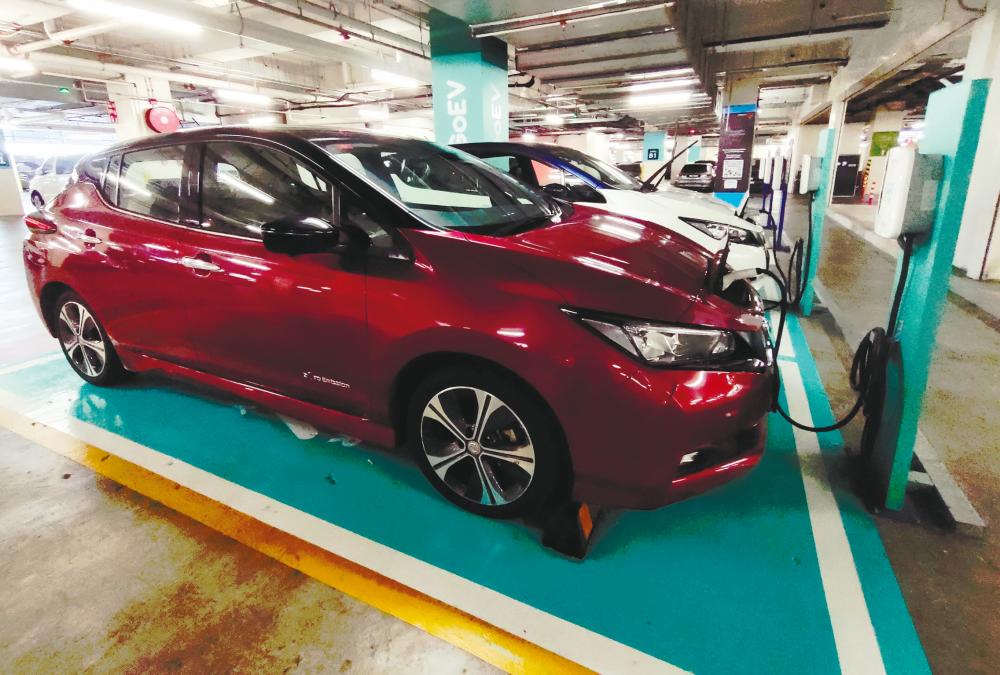PETALING JAYA: Will the growing popularity of electric vehicles (EV) sound the death knell for Malaysia’s oil and gas industry? Not in the foreseeable future, said Sunway University economics professor Dr Yeah Kim Leng.
While EV sales in Malaysia totalled 2,631 units last year, it was only 271 in 2021, according to BMI, a Fitch Solutions company.
Nonetheless, it has forecast that the country’s total EV sales would quadruple this year, although the penetration rate in the country will be at just 1.8%.
Yeah said the growth of EV will accelerate the country’s electrification, decarbonisation and transition to clean energy.
“This has been elucidated in the National Energy Transition Roadmap to achieve net zero carbon emissions by 2050.
“However, EV will not pose an immediate threat to the oil and gas industry. It would likely take five to 10 years before they dominate the automotive industry.”
Yeah said as an emerging industry, EV will spur investment and business opportunities in the entire production and supply chain.
“In future, the EV industry and renewable energy will become the core of the economy.”
Yeah said the refined petroleum industry is expected to experience a gradual decline in demand as consumers switch to EV.
The oil and gas industry, including petroleum refining, accounted for 11.1% of gross domestic product (GDP) in 2015. Its share declined to 8.9% in 2020 and eased further to 8.5% last year, he said.
“Despite its declining share due to lower production amid depleting reserves, and a low replacement ratio, its national income contribution remains larger than agriculture (6.6%) and construction (3.5%).
“The government also derives a sizable portion of revenue from petroleum-related activities, which amounted to 28% in 2022.
“It is estimated to be 23% of total revenue this year, according to figures published by the Finance Ministry.”
Yeah said the oil and gas industry contributes to Malaysia’s diversified economy since services and manufacturing are the two mainstays.
Besides being a net foreign exchange earner, he said it also contributes to the country’s energy security.
He added that the main threat presented by EV is its substitution of internal combustion engine motor vehicles, which are expected to face declining demand, just like oil and gas.
Yeah said the shift will accelerate as EV battery technology advances, driving range per charge increases, costs scale lower and it becomes more economical for consumers to use EVs than conventional vehicles.
“The removal of fossil fuel subsidies and the provision of fiscal and financial incentives and support, especially in expanding charging infrastructure, are also factors that will accelerate EV adoption.”
He said while Malaysia’s electricity generation is dominated by fossil fuels, there will be a gradual shift from coal to the more environmentally friendly natural gas, thereby assuring the future of Malaysia’s gas industry.
“The country’s dependence on tax revenue and dividends from the oil and gas industry has been on a declining trend over the past several decades as the economy gravitates towards manufacturing and services.
“The shift from coal to natural gas for electricity generation could also cushion the oil and gas industry from any demand shock caused by EV.”
Yeah said in future, Malaysia could focus on economic activities in the digital economy, including e-commerce, the Internet of Things, 5G communications, robotics, artificial intelligence, data analytics, big data, cyber security, cloud services and data centres.
“These activities can either be a driver or enabler of growth, depending on how they are deployed to create new products and services or increase the efficiency and productivity of existing industries.
“The key to a robust economy is continuous innovations and industrial upgrading that enable the country to increase productivity and competitiveness while moving up the value chain,” he said.











